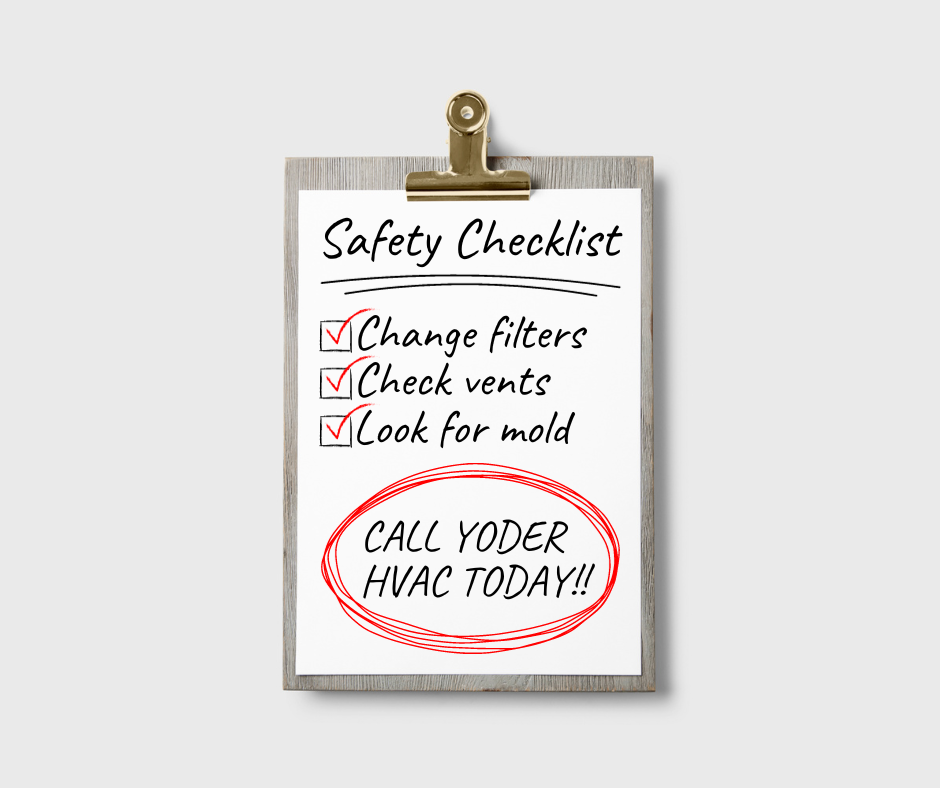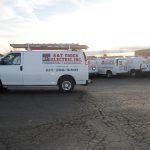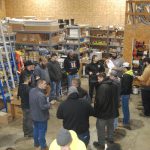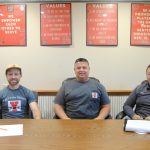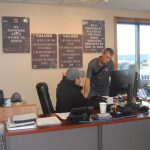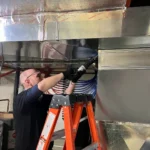A well-functioning HVAC system is essential for keeping your home comfortable all year. However, if not properly maintained and used, HVAC systems can present safety hazards. Here are some essential tips for using your HVAC safely:
Change filters regularly.
Clogged filters can restrict airflow, overwork your HVAC system, and potentially lead to dangerous carbon monoxide buildup. Aim to change filters every 1-3 months to prevent restricted airflow and overworking the system, which can lead to inefficiency, higher energy bills, and carbon monoxide buildup if exhaust can’t properly vent.
Have your HVAC system serviced annually.
A yearly maintenance check allows the technician to check for leaks, look for corrosion, clean components, and ensure everything works properly. Preventative maintenance prevents more significant problems and ensures peak operating efficiency. Some preventive measures are:
Keep vents and returns clear.
Don’t block vents with furniture or objects. Ensuring proper airflow prevents overheating issues in summer and a lack of heat in the winter. It also allows the system to operate efficiently and keep the air quality fresh and clear.
Watch for signs of a gas leak.
A rotten egg smell, dead plants near appliances, and sooty discoloration on vents can all indicate a dangerous gas leak. If you suspect a leak, leave the house immediately and call the gas company. Do not turn switches on or off, as a spark could ignite leaking gas. Allow professionals to handle it.
Use your emergency shut-off switch.
If your HVAC system is malfunctioning, making strange noises, sparking, smoking, etc., shutting off the power can prevent further damage. Call a technician to inspect the unit before restarting.
Install carbon monoxide and smoke detectors.
Place monitors near HVAC equipment. They will alert you quickly to dangerous scenarios like gas leaks or fires. Having detectors nearby ensures fast detection of potential HVAC issues.
Watch out for asbestos.
In older homes, asbestos was commonly used as HVAC insulation. Don’t disturb it yourself. Hire certified asbestos removal specialists if needed, as asbestos particles can cause lung disease if inhaled.
Keep combustibles away.
Oils, chemicals, cardboard boxes, etc., near HVAC components can be fire hazards. Maintain clearance around systems to prevent fire risks.
Use caution around outdoor AC units.
Keep children from playing on or around the outdoor condenser. The fins can cut fingers if touched. Also, don’t pile debris around the unit, as this can limit airflow. Give the unit plenty of open air.
Handle refrigerant carefully.
The refrigerant in AC systems is under high pressure. Yoder’s HVAC technicians are trained to handle it, as accidental releases can cause injuries and harm the environment. Never try DIY refrigerant refills.
Practice electrical safety.
Turn off the power at the breaker before servicing the equipment. Confirm it’s off by testing with a voltmeter; don’t flip the switch. There are shock hazards inside units.
Watch for tripping hazards.
Don’t let cords from window ACs trail across walking paths. Use cord covers to avoid tripping. The ductwork that isn’t flush with surfaces also presents a risk.
Prevent carbon monoxide buildup.
Annual furnace inspections ensure proper functioning that prevents CO. Detectors also sound the alarm before dangerous levels occur, giving you time to address issues.
Check for mold growth.
Leaks causing moisture can lead to mold in vents and ducts. Quickly address any issues before they spread and cause health issues.
Use space heaters safely.
Never leave portable heaters unattended. Place on level surfaces away from foot traffic to prevent fire hazards. Use units with auto shut-off.
Don’t run generators indoors.
Deadly carbon monoxide poisoning can occur if you operate a generator in an attached garage. Only run outdoors, away from doors and windows.
Watch for ice dams in winter.
Built-up snow/ice on roofs can melt and refreeze at gutters, leading to ice dam backups and leaks as water seeps under shingles. Keep roofs shoveled.
Check for HVAC duct hazards.
Rodents or insects can get into ducts, causing noise, debris from vents, bad smells, or contaminated insulation. Have the ducts cleaned and sealed.
Schedule seasonal maintenance
Have a spring tune-up to ensure the AC is ready for summer and a fall furnace inspection to prepare for winter. This improves safety and efficiency.
There are many safety considerations when operating HVAC equipment. But with preventative maintenance, caution, and hiring certified professionals like Yoder, your home’s system can work safely for many years! Let us know if you have any other HVAC safety questions.
